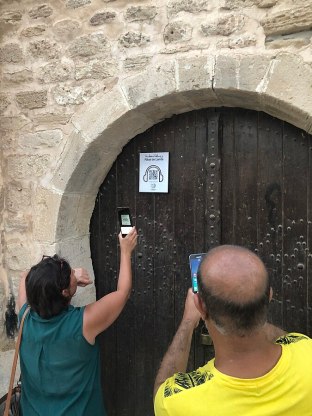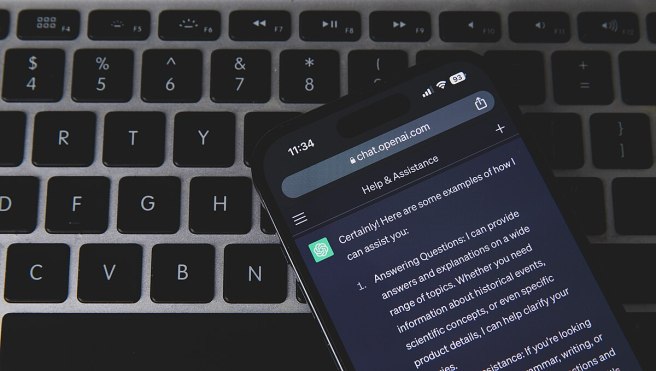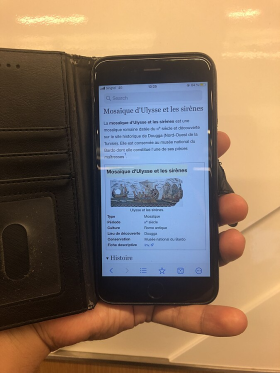Lately, one of the most prevalent discussions centers on recent advancements in generative artificial intelligence and large language models (LLMs), as well as the introduction of new tools such as ChatGPT, BARD, LLaMA, Claude…
In my humble opinion, these tools serve as a second wake-up call for the Wikimedia movement, with the first being the introduction of translation tools. They underscore the idea that content creation is becoming increasingly accessible, placing the real challenge for us as Wikimedians in discovering innovative ways to utilize this content. While having content is valuable, the true strength lies in our ability to harness and leverage it effectively.
Having content is good, finding out how to use it is even better.
While, as Selena Deckelmann aptly mentioned in her post, AI tools won’t replace us, the dedicated Wikimedians who ensure, thanks to the Wisdom of the crowd, that, in a digital landscape inundated with AI-generated information, there will always be a trusted repository for accessing sourced, curated, and debated knowledge; undoubtedly, these emerging AI tools will significantly assist us and streamline our tasks by making content creation more efficient and less burdensome.
Numerous examples vividly demonstrate the utility of these tools, including machine translation, in assisting Wikimedians with content creation. In such instances, we can refer to this as “Wiki content supported by AI“.
As part of these examples, we can mention the experimentation carried out by Andrew Lih with ChatGPT. This demonstration highlights the potential for LLMs to aid in the creation of Wikipedia articles or assist in the process of rephrasing specific passages (c.f. this template used in articles that incorporate text from AI).
Additionally, we can draw attention to the experiments conducted by Houcemedine Turki, as showcased during Wikimania 2023 in Singapore. His presentation provides tangible instances of how we can harness the capabilities of LLM tools in practice.
Also, thanks to advancements in machine translation, it is now theoretically possible, with just a few clicks, to translate a single Wikipedia article into hundreds of different languages. Moreover, with the aid of machine learning, which enhances translation quality, and initiatives like NLLB (No Language Left Behind), the prospect of translating vast resources like the entire English Wikipedia into numerous other languages becomes increasingly achievable.
It’s crucial to bear in mind that technology is advancing rapidly, continually improving, and often delivering unexpectedly high-quality outcomes. Just a few years ago, we had little insight into the capabilities of LLM tools and the content they could generate.
Indeed, when we contemplate as Mohamed Louadi explained the combined influence of Moore’s Law, signifying the continuous and rapid enhancement of processing power and capabilities in computer chips over time, along with Metcalfe’s Law, which emphasizes that the value and utility of a technology increase as more users adopt it, thereby attracting an even larger user base, we can anticipate a forthcoming surge in the capabilities, quality, and adoption of these tools.
That being stated, I have no doubt that in the coming years, the true challenge for Wikimedians will be to explore how we can effectively utilize the content that we have accumulated over years.
In reality, this isn’t a novel concept, as we’ve witnessed numerous outreach initiatives in previous years, especially in education and GLAM (Galleries, Libraries, Archives, and Museums). However, I believe it’s imperative to elevate Outreach as a top priority, infuse innovation into our efforts, and align them more closely with mobile-oriented approaches.
Let me outline a few initiatives I’m currently collaborating on with fellow Wikimedians, all aimed at demonstrating how we can collectively harness the potential of available Wiki content for mutual benefit.
–Sawtpedia: www.sawtpedia.wiki is a QR code generator tool inspired by QRpedia. It enables mobile users to listen to Wikipedia articles in their phone’s language, including potentially in their local languages. The tool can be used by GLAM institutions in several ways to enhance the visitor experience and increase accessibility to their exhibits. Sawtpedia can be used as well as a tool to promote accessibility and inclusivity by providing information to those who may have difficulty reading or accessing text-based content.

( User:Yamen CC-BY-SA-4.0)
–Generating mobile applications for museums: As a part of the ambitious Makumbusho project, which aims to provide a platform that should allow any museum documented on Wikipedia to have its own multilingual offline mobile application, an impressive new tool has been developed by Kiwix. This tool has the capability to transform among other things a Wikidata SPARQL query into a Zim file, compatible with the Kiwix mobile app. This remarkable tool streamlines the process of creating a mobile application based on a selection of Wikipedia articles in just a few clicks. During the Hackathon showcase at Wikimania 2023, I had the privilege of working with Emmanuel from Kiwix to demonstrate how, in a matter of clicks, we generated a mobile app for the Bardo Museum in Tunisia.
–Wiki Festivals Calendar (Work in progress): this tool aims to effortlessly generate a comprehensive calendar of festivals worldwide, all through the power of SPARQL queries. Users can conveniently explore festivals by country or specific timeframes, enhancing their festival discovery experience.
Numerous other tools can be created to harness the immense potential of Wikidata and the available content from Wikipedia, Commons and other Wiki projects.
If you’re aware of any other inventive tools for leveraging Wiki Content, we encourage you to share them in the comments. If you’re not familiar with such tools, consider pondering this question: How can we maximize the utility of the content we’re diligently creating and curating?

Can you help us translate this article?
In order for this article to reach as many people as possible we would like your help. Can you translate this article to get the message out?
Start translation


